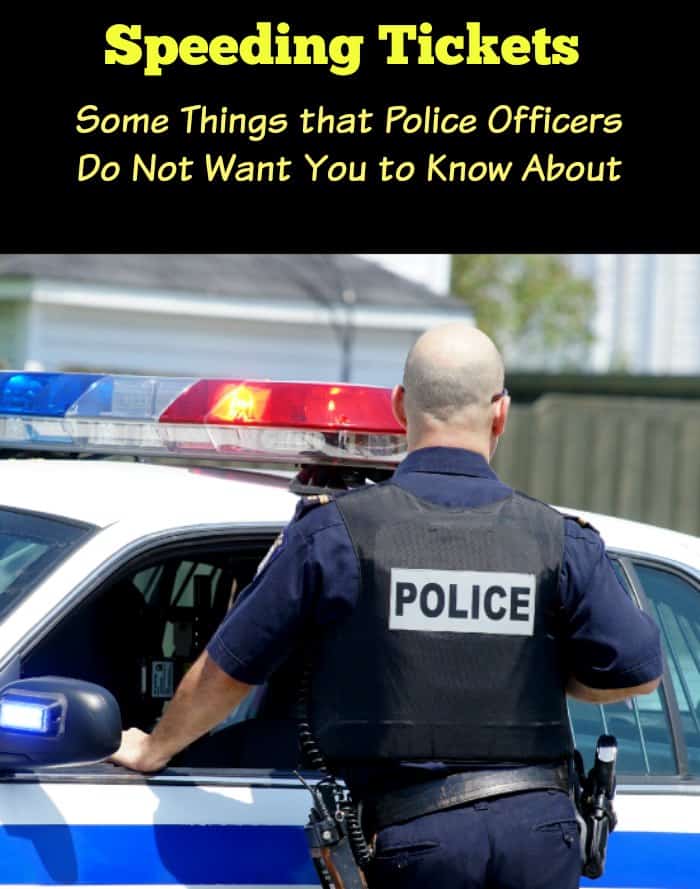Things that Police Officers Do Not Want You to Know About
Things that Police Officers Do Not Want You to Know About
Speeding and Tickets
Let’s hope that you are a law abiding citizen first and foremost. But if you happen to have found yourself in a bit of trouble, here are some things police officers do not want you to know about speeding. Use these helpful hints and you just might save yourself a ticket. Hit the brakes!!
Cops are human just like you and me, contrary to popular belief. If you see a police car, hit the brakes. You might just have enough time to get slowed down before he/she has time to check your speed with a device.
Size does matter (sometimes)
Depending on the type of radar being used, the beam locks on to the largest vehicle in the radar beam. So if you find yourself slightly ahead of a large truck when you see a police cruiser, stay near the truck and pace it. This can prevent the officer from being able to lock in your speed. There are other types of radar (IE LIDAR) that can target your directly, but it never hurts to try. However, this is old radar technology. Today’s technology can detect faster moving objects no matter what size is around it if they are using laser or stalker radar.
You can’t always talk your way out of a ticket, but you can always talk your way into one
Be polite. The officer has probably witnessed countless serious accidents and probably has a genuine concern for your safety and the safety of others. Charm works more often than being rude if you are going to try and talk your way out of a ticket. Sometimes you can get the officer to reduce your speed on the citation if you are being courteous which can reduce the fine amount, keep it off your driving record, and keep it off your insurance. SO BE NICE!
On the flip side, you can almost guarantee a ticket if you are rude, obnoxious or argumentative.
Tip: The more rude you are, the more the officer will make note of your actions to display in court.
Make a note of other traffic in the area
Don’t argue with the officer that you were simply, “Going with the flow of traffic.” There’s a good chance if the officer stopped you that you were not just going with the flow. However, note other vehicles in the area of where you were stopped if you notice where the officer clocked your speed. If you get a ticket, can you always blame it on other traffic depending on the level of training and experience the officer has in testifying to speeding citations. The more specific you can be about other cars (make, color, etc) the better off you are in court.
Record the temperature
Temperature can affect the tuning forks in which the officer uses to verify the calibration on his radar unit. If the forks are hot, it can alter the resonance produced and give bad readings. Asking the officer about this in court can lead to him saying his radar has produced bad readings before, giving doubt to the judge and getting you out of a ticket! Don’t admit to anything.
Note: Lots of officers have not received official training on speed detection devices. It’s mostly on the job training.
This information was gathered by speaking to a few police officer friends in different areas on the United States. There are different polices and equipment that each department uses.







